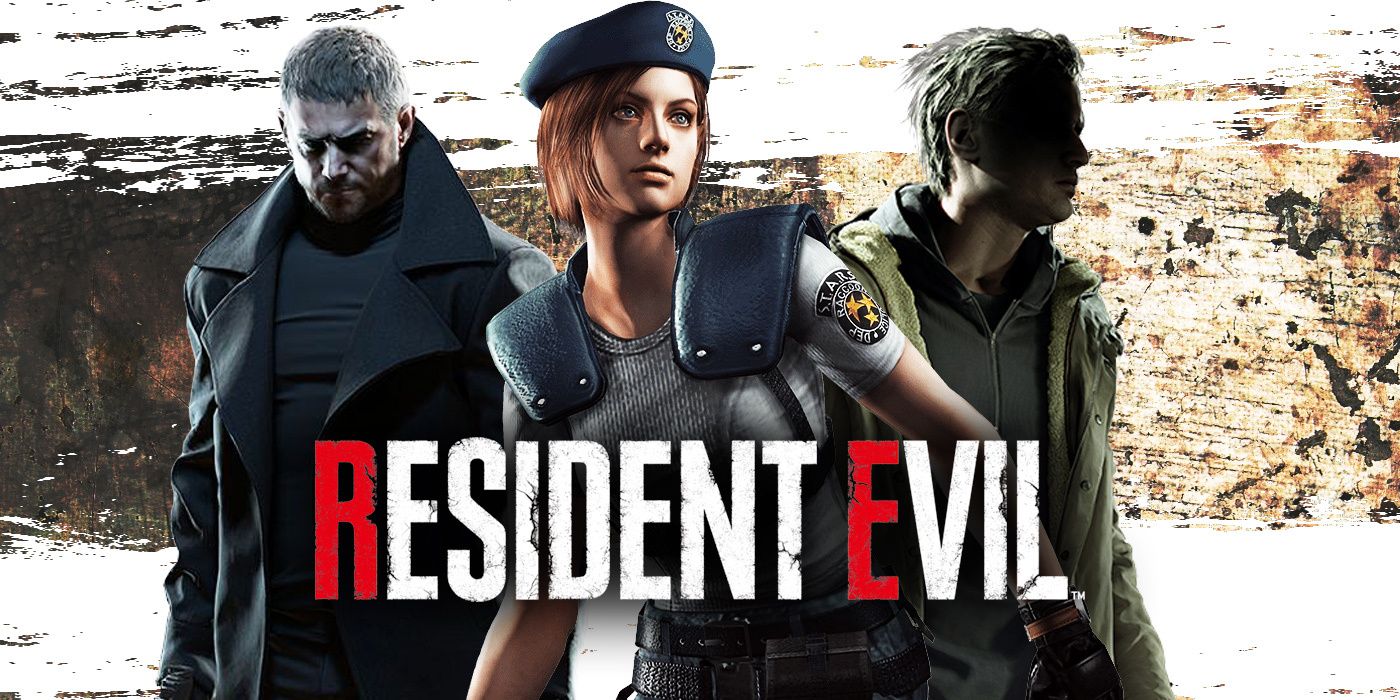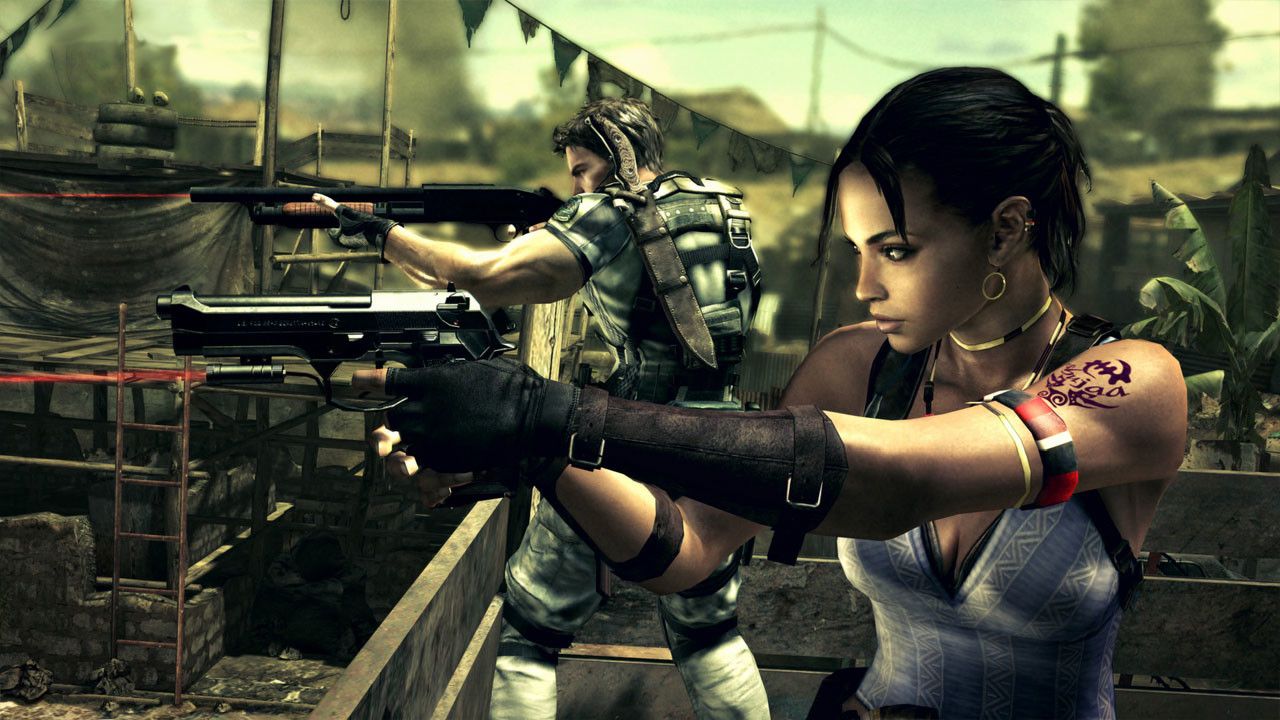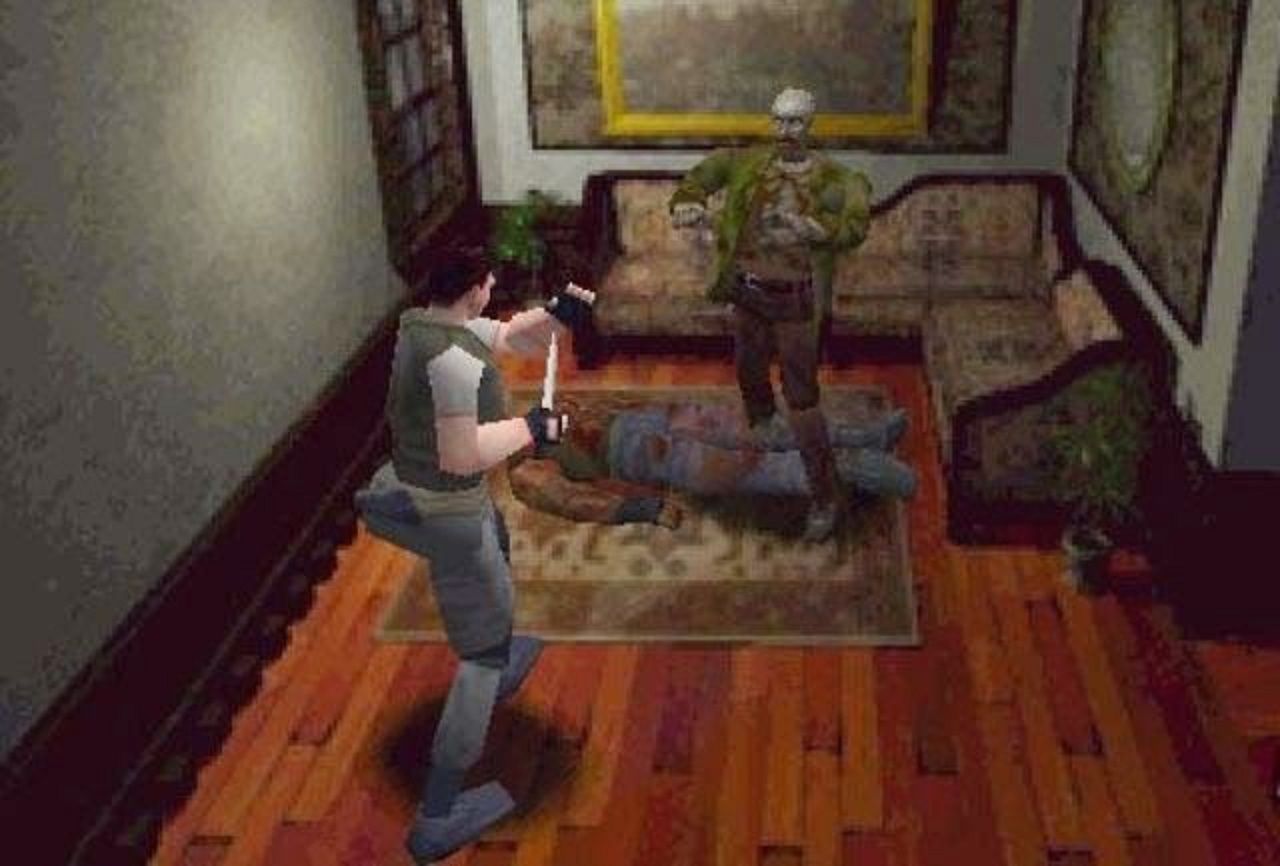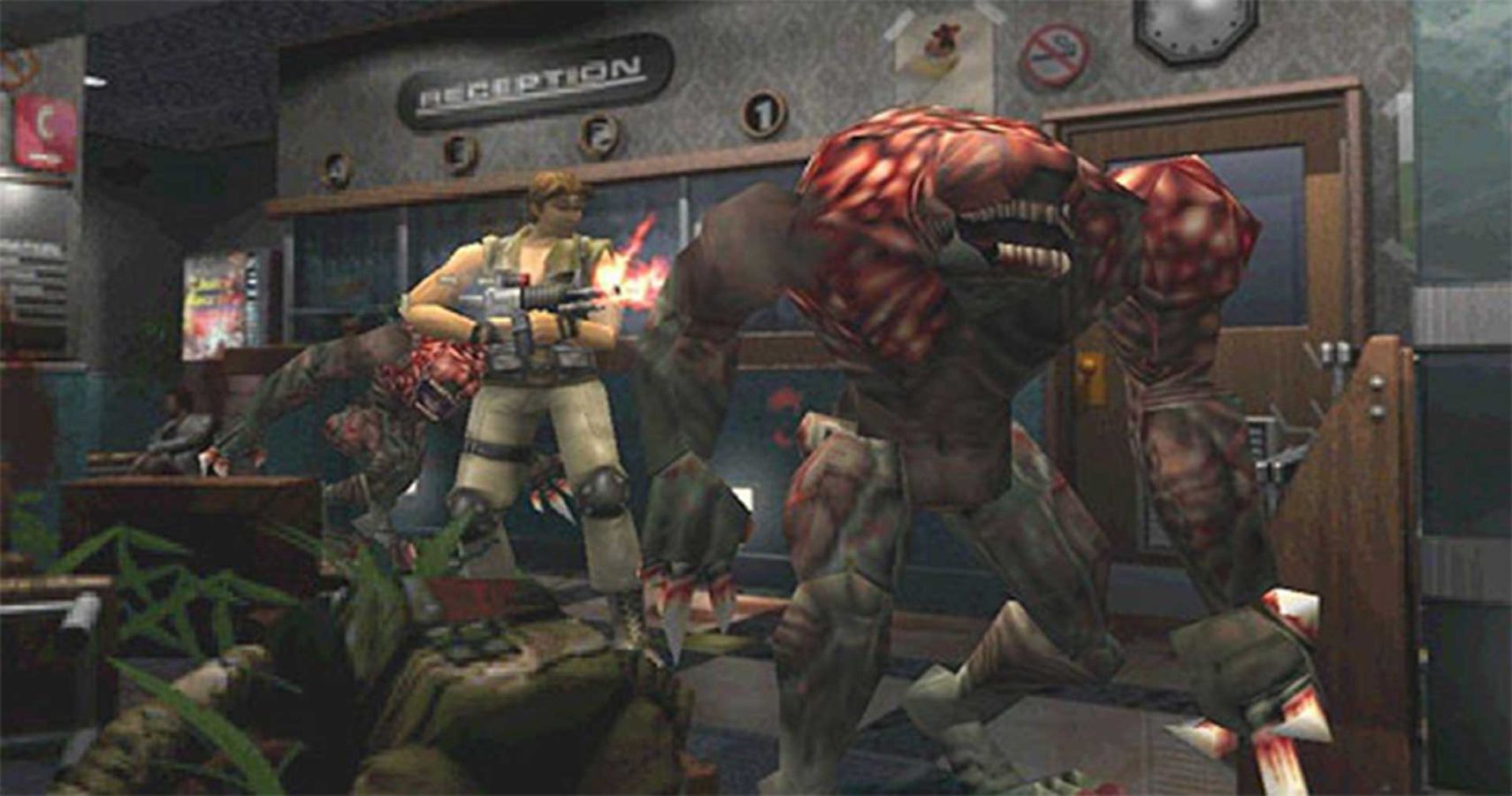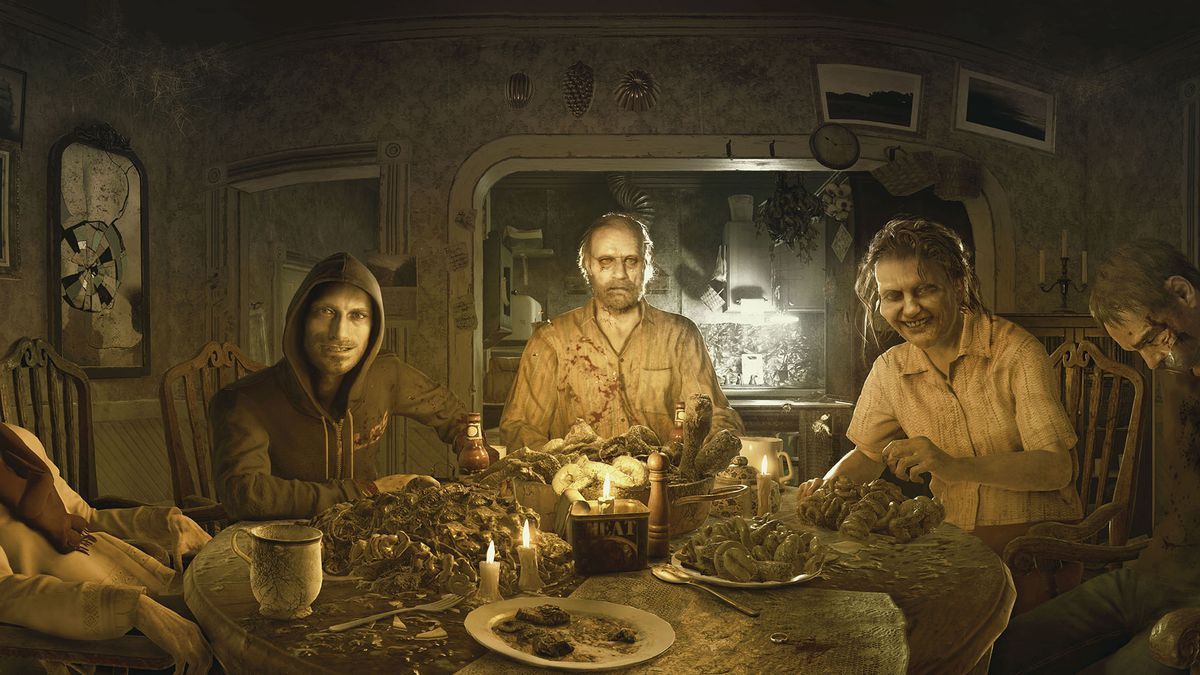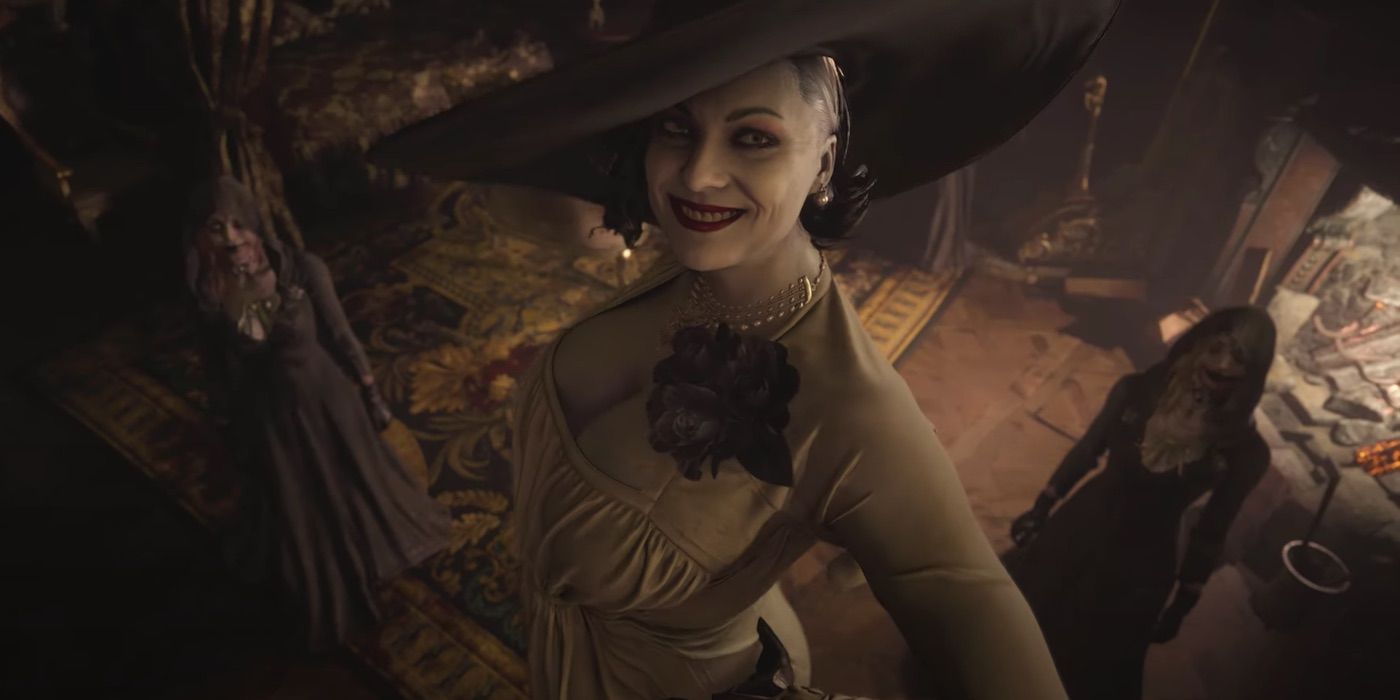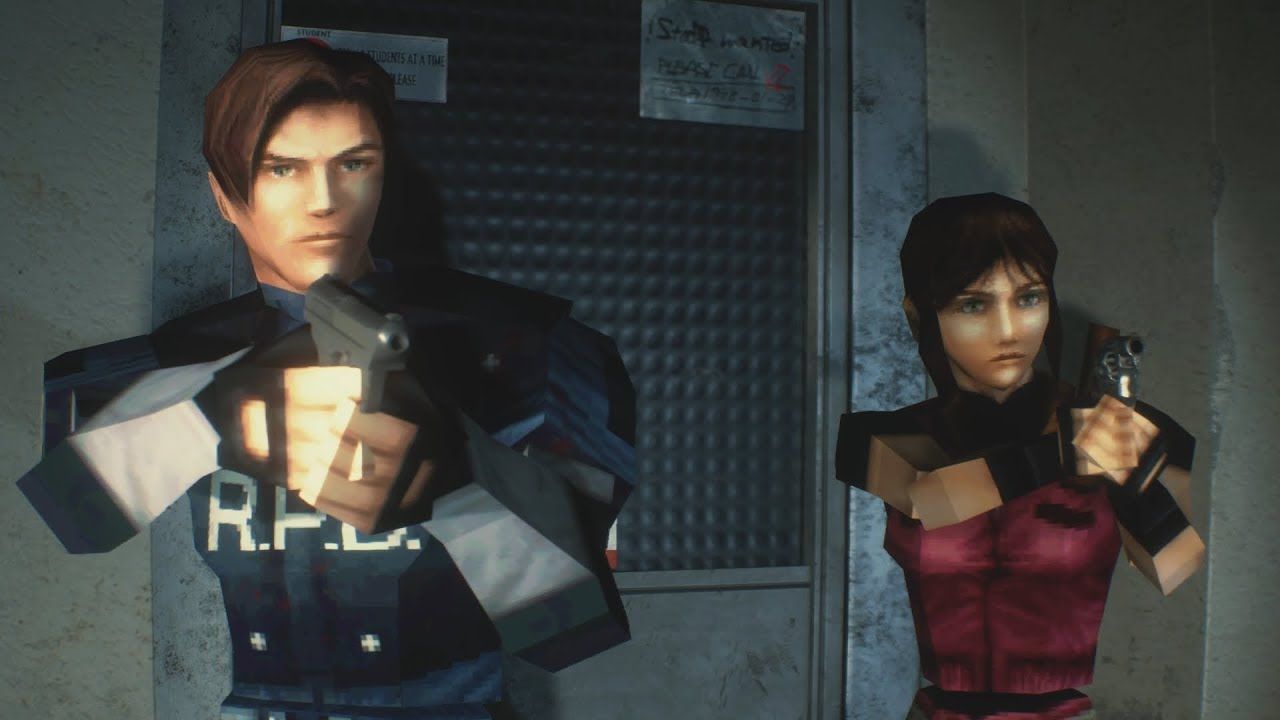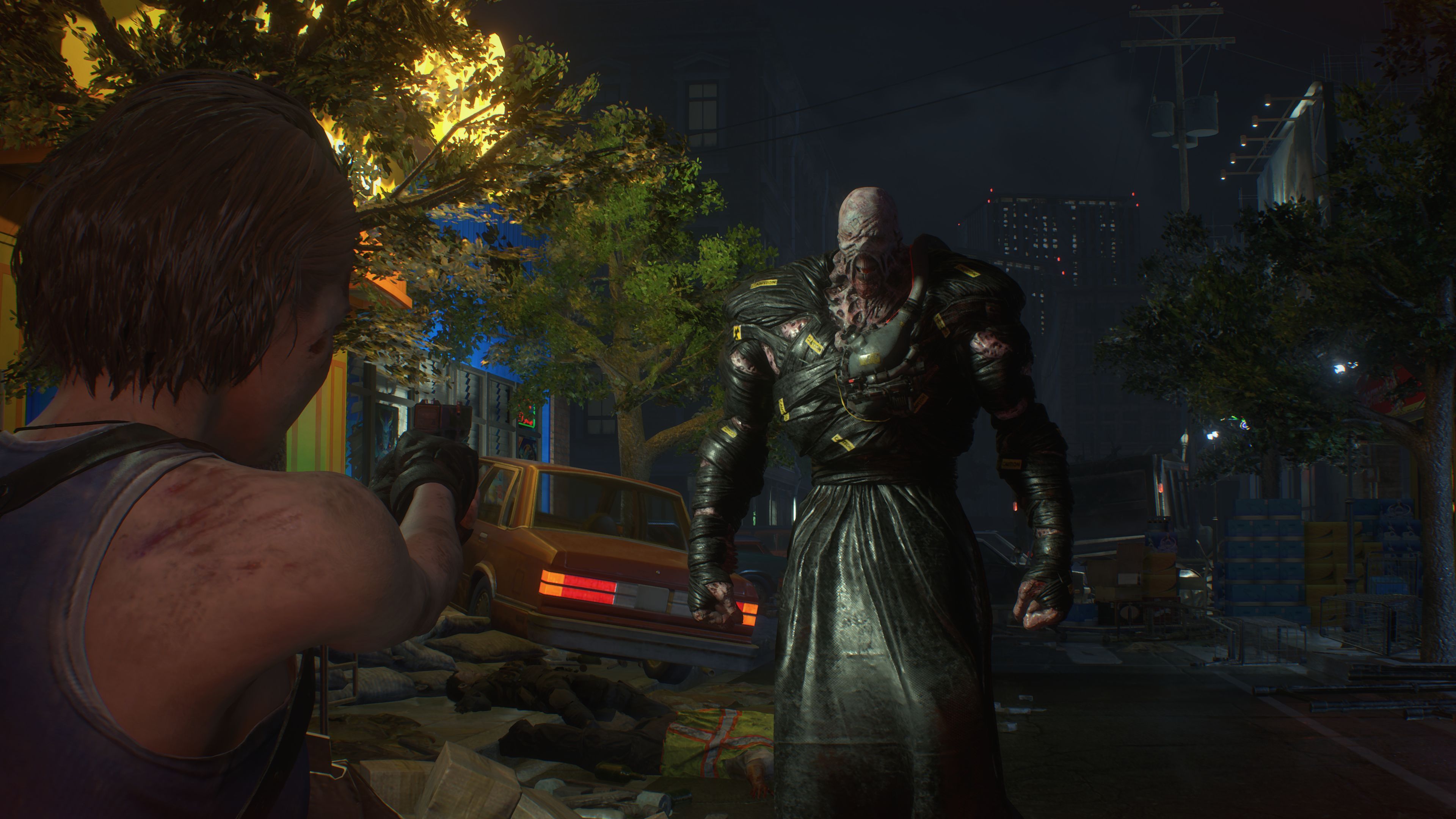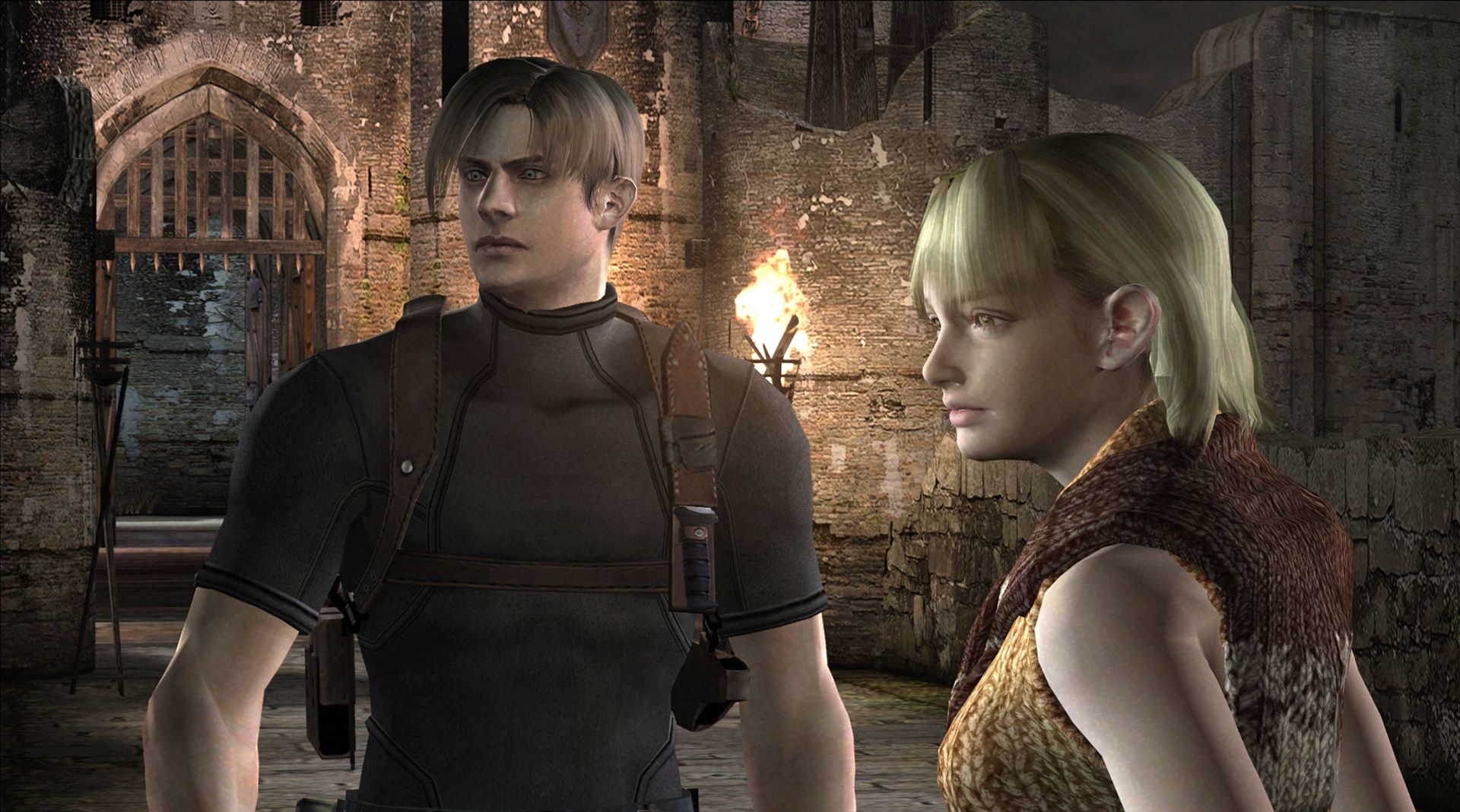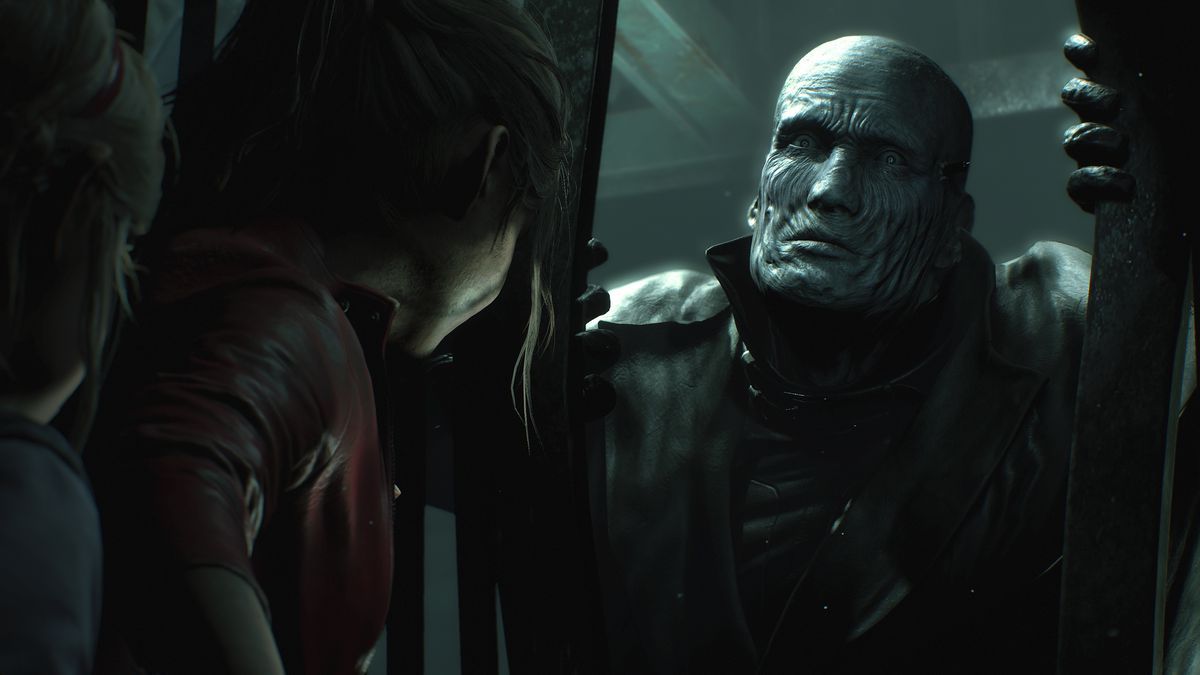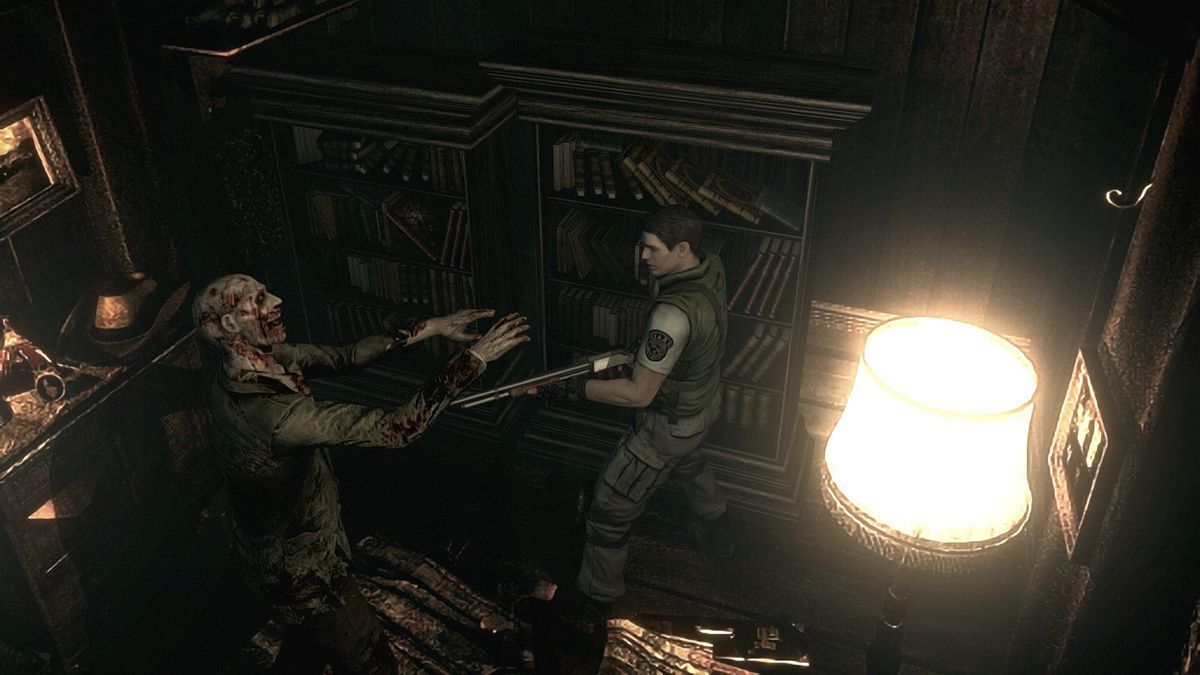With a total of 15 main entries into the Resident Evil franchise (not including spin-offs), there has been plenty of time for fans to develop an idea for what makes a good game in the series. A great Resident Evil game will find a way to balance survival horror with action-thriller, with a dash of puzzle-solving mixed in for good measure. Put too much or too little of one into the game and it suddenly starts to fall away from feeling like a Resident Evil game and begins to linger into the "generic shooter" genre that makes it rather forgettable. A perfect Resident Evil game will make the player feel like they could die at any moment while simultaneously giving them the tools to think if they play just right, they will survive. Another key theme in the games is a sense of progression in power. Players will often start with a weak pistol, but by the climax of the game, they will be launching grenades and rockets at terrifying creatures created by mad scientists that just don't know when to quit.
With that in mind, here are the top 10 mainline Resident Evil games, ranked.
10. Resident Evil 5
Despite being last on this list, Resident Evil 5 stands to be somewhat of a cult classic in the Resident Evil Community. Despite not necessarily following the golden balance of Resident Evil mentioned earlier, instead opting to focus on a co-op shooter campaign, Resident Evil 5 somehow managed to win players over with just how fun it was to play through with a friend. No previous game in the franchise had allowed for an entire campaign to be played with more than one person and making the campaign focus on that feature meant that fans of the franchise were encouraged to experience it together for the first time. Hardcore Resident Evil fans may say that this game doesn't deserve to be on the list, but for every one fan that was disappointed in the game, two more fans found that the game had its high notes and that it deserves a pass for bringing such a unique gameplay dynamic that hasn't quite been replicated since in the franchise.
9. Resident Evil
Initially released in 1996, there is no denying that the original game that started off the franchise had its issues. For one, the voice acting is...questionable at best, which really breaks the tension that Resident Evil games are supposed to instill. The same goes for the full motion videos, which can seem very campy upon viewing today. Still, without the success of this game, the franchise wouldn't exist today, and it deserves extra credit for taking the horror survival genre to the next level. Key gameplay features like inventory and item management also made it stand out above other games as one that offered a real challenge for players to adapt and overcome. Every shot counts, and with limited saves placed at certain checkpoints, the space for error is very limited. The cherry on top is the ability to play as two characters: each one with their own gameplay differences and campaigns which add more replay value.
8. Resident Evil 3: Nemesis
Continuing off of the idea of player choice, Resident Evil 3: Nemesis adds another major gameplay feature involving choice. This comes in the form of the game's titular antagonist, a large creature that stalks the player throughout the game. Encounters with Nemesis leave the player with the base survival instinct choice of flight or fight. Players may choose to escape from Nemesis, thus conserving ammo and health items they may need later, or they can choose to fight Nemesis for the opportunity at unlocking exclusive rewards. The constant pursual of players meant that tension was at an all-time high, and proper inventory management was more crucial now than ever. While the potential to get stronger weapons from defeating Nemesis sounds tempting, the risk of using too much ammo on the creature and finding yourself stuck later is a real threat that must be properly assessed before a decision is made.
7. Resident Evil 7: Biohazard
After the release of Resident Evil 6, fans of the franchise were starting to lose hope that the game would ever return to the way it used to be. In 2017 they got their answer as Resident Evil 7: Biohazard released to critical acclaim. Being recognized as a return to form, Biohazard not only went back to putting horror survival above action thriller, but it was the first main line Resident Evil game to utilize the first-person perspective. A divisive choice, it turned out to be one that paid off, as players felt more immersed into the horror than ever before as terrifying creatures lunged right into their faces. Biohazard also does an excellent job at ramping up the feeling of power that the player has by giving solid weapon progression as they explore the Baker family residence. Mix that with solid puzzles and a slew of memorable antagonists in the form of the Baker family members and you have a Resident Evil game that finally put the franchise back on the right track.
6. Resident Evil Village
The latest in the main line games, Resident Evil Village is a sequel to Biohazard that continues the story of Ethan Winters, the protagonist from Biohazard. In this game, Ethan must face off against monsters reminiscent of old tales such as vampires and werewolves. The Eastern European village gives a setting that closely resembles architecture found in the Victorian era, allowing for yet another unique backdrop for the franchise to experiment with. New characters, including the prominent owner of the game's castle Lady Dimitrescu, keep the narrative fresh and lively, relying less on lore from previous titles and instead making its own additions to the series' lore. Gameplay resembles that of Biohazard, allowing for it to continue the notion that Resident Evil has returned to its roots.
5. Resident Evil 2
Releasing two years after the original, Resident Evil 2 sought to take the gameplay of its predecessor and finely tune them. The end result is a game that hits the same high notes as the first with fewer low notes. While the game did not add anything too revolutionary to the gameplay loop (though it does introduce what could be argued as the test run of Nemesis in the form of 'Mr. X' in the B campaign) Resident Evil 2 shows that the original game had the right idea, it just slipped up in a few spots. A new environment in Raccoon City along with new characters such as fan-favorite Leon Kennedy help to push this game above the original as a great Resident Evil game.
4. Resident Evil 3 (Remake)
With how well-received Resident Evil 3: Nemesis was, it would make sense that a remake of the game would do just as well, if not better. While such an idea doesn't always hold up, it fortunately did with this entry. Completely modernizing the game, implementing vastly improved graphics and audio, Resident Evil 3 (Remake) was released in April of 2020 shortly after the release of Resident Evil 2 (Remake). Utilizing the same engine for both games, Capcom was able to give a new generation of gamers the ability to experience the horrors of Raccoon City like never before. While some critics viewed this game as unambitious or not to their expectations, many praised Capcom for taking the opportunity to look back on previous works and allowing them to be reborn for fans both old and new.
3. Resident Evil 4
Resident Evil 4 was the last game in the main series to capture the feeling of a true Resident Evil game until Biohazard's release. That may be why it is looked back on as one of the best games in the entire franchise. Utilizing Leon Kennedy, players are tasked with rescuing the President of the United States' daughter, Ashley Graham. Strangely enough, this entry decides to focus more on the action portion of Resident Evil instead of the horror aspects. While initially this may seem counter-intuitive at first, as we discussed earlier that placing too much focus on one genre over the other usually results in an overall mediocre status, the game still manages to keep the horror aspect alive through different means. Instead of small encounters littered about the game, instead Resident Evil 4 gets the blood pumping in players' bodies by sending hordes of enemies their way to fight. High quality voice-acting along with the decision to change the perspective to third-person over the shoulder made for a game that was incredibly satisfying to play. Resident Evil 4 took the risky leap that the series needed to stay relevant, but that decision may also have led to future developers pushing the envelope too far, resulting in one of the worst games in the series, Resident Evil 6.
2. Resident Evil 2 (Remake)
Released just a few months before Resident Evil 3 (Remake), the remake for Resident Evil 2 was generally considered to have outdone its sibling upon looking back between the two. Making the same observations as with the previous entry, Resident Evil 2 (Remake) captures the thrill of the original game with overhauled graphics and gameplay controls. Never before had the destruction of Raccoon City looked so ominously beautiful, and it showed the world that Capcom knew exactly what made the original Resident Evil games so good while also recognizing what could be polished to allow for the best experience possible. However, this was not the first time that Capcom had given an old entry new life.
1. Resident Evil (Remake)
Topping the list is the remake of the original Resident Evil, released in 2002. This remake was definitive proof that the original Resident Evil game had incredible ideas, just not the best execution. Revamped music, graphics, and perhaps most importantly voice-acting propelled this game to being one of the best in the entire series. The graphics were especially well received at the time, with many stating that the atmosphere had never been better for a Resident Evil game before with the inclusion of real-time lighting and shadows. It single-handedly instill the new standards for the series, and it is most likely the foundation that led Capcom to even consider remaking the next two entries into the series in the first place.

